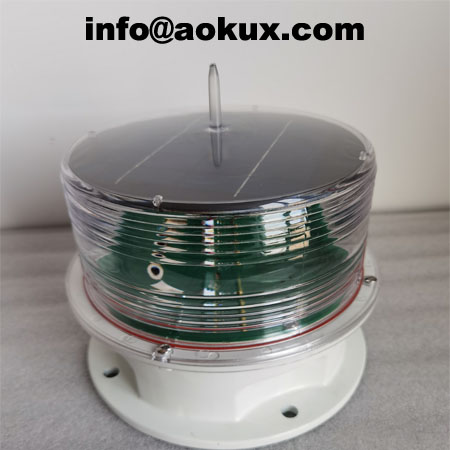
Solar Marine Lights: Illuminating the Way for Safe Navigation at Sea
Introduction:
In the vast expanse of the world's oceans, safe navigation is of paramount importance. One significant advancement in maritime safety technology is the use of solar marine lights. These specialized lights, equipped with solar panels, have revolutionized the way navigational aids are powered and have greatly enhanced visibility for ships and vessels, especially in remote and off-grid locations. In this article, we will explore the significance of solar marine lights and their impact on maritime safety.
What are Solar Marine Lights?
Solar marine lights, also known as solar navigation lights, are compact and durable lighting devices designed specifically for maritime use. They harness solar energy through built-in solar panels, which charge their internal batteries during the day. At night, these lights automatically illuminate, providing clear and visible signals to ships and vessels, aiding in safe navigation. Solar marine lights are typically installed on buoys, lighthouses, offshore platforms, and other marine structures.
Key Features of Solar Marine Lights:
Solar Power:
Solar marine lights utilize renewable solar energy to power their internal batteries. The built-in solar panels capture sunlight and convert it into electricity, eliminating the need for traditional power sources such as batteries or grid connections. This makes them environmentally friendly and cost-effective.
Energy Efficiency:
Solar marine lights utilize energy-efficient LED lights, which require less power to operate compared to traditional incandescent lights. This efficiency ensures longer battery life and reduces maintenance requirements.
Self-Sustainability:
Solar marine lights are independent power systems, capable of operating autonomously. They charge during the day and can illuminate throughout the night, even in remote or off-grid locations where power infrastructure is limited or non-existent.
Durability:
Solar marine lights are designed to withstand harsh marine environments, including exposure to saltwater, UV radiation, and extreme temperatures. They are constructed using corrosion-resistant materials, ensuring their longevity and reliable performance in challenging conditions.
Remote Monitoring and Control:
Many solar marine lights are equipped with advanced monitoring and control systems. This allows operators to remotely monitor the lights' performance, including battery charge levels, light intensity, and potential malfunctions. Remote control capabilities also enable operators to adjust the lights' settings and flash patterns as needed.
|
Solar Marine Light |
Solar Marine Lights |
